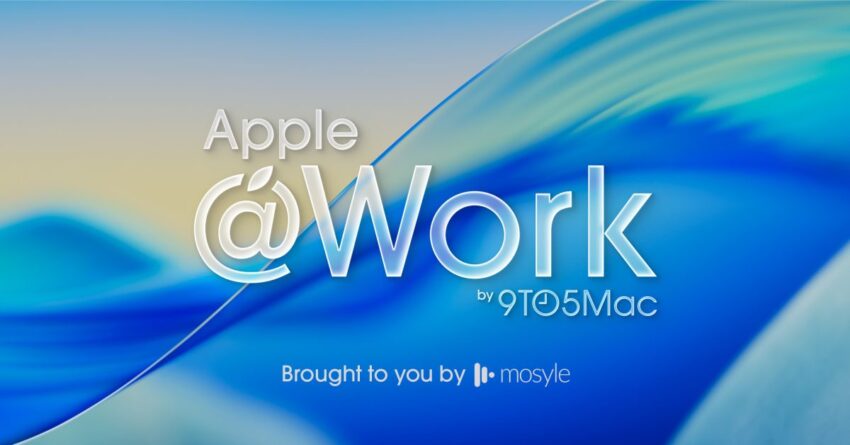
apple work cios say apple is now Recent surveys indicate that Apple has transitioned from being a niche player in enterprise IT to a mission-critical platform for organizations worldwide.
apple work cios say apple is now
Apple’s Rise in the Enterprise Sector
Since 2020, Apple has made significant strides in the enterprise market, evolving from a brand that employees often requested IT support for, to a platform that Chief Information Officers (CIOs) now regard as essential. This transformation is underscored by a recent survey revealing that Apple devices currently account for 63% of endpoints in enterprise environments. This trend reflects a broader acceptance of Apple technology in workplaces traditionally dominated by Windows-based systems.
Survey Insights
The survey, which gathered insights from various CIOs, highlights a growing trend in the adoption of Apple products across multiple sectors. Key findings include:
- Mac Purchases: A staggering 95% of IT leaders expressed intentions to increase their Mac purchases over the next two years. This indicates a robust confidence in Apple’s ability to meet enterprise needs.
- AI Workloads: Approximately 73% of organizations are already leveraging Apple devices to run artificial intelligence workloads. This is a significant endorsement of Apple’s performance capabilities, particularly with its M1 and M2 chips.
- Integration and Usability: Many CIOs cited the seamless integration of Apple’s hardware and software as a key factor in their decision to adopt Apple products for enterprise use.
Factors Driving Adoption
Several factors have contributed to Apple’s growing prominence in the enterprise sector. Understanding these elements can provide insight into why CIOs are increasingly prioritizing Apple technology.
Apple Silicon
One of the most significant advancements in Apple’s product line has been the introduction of Apple Silicon, starting with the M1 chip. This transition from Intel processors to custom-designed chips has resulted in enhanced performance and efficiency. The M1 and subsequent M2 chips have demonstrated remarkable capabilities, allowing Apple devices to handle demanding tasks, including complex AI workloads, with ease.
Apple Silicon not only improves speed and performance but also optimizes battery life, making devices more reliable for long hours of use. This is particularly appealing in enterprise settings where downtime can be costly.
End-to-End Hardware and Software Integration
Apple’s ecosystem is known for its seamless integration between hardware and software. This end-to-end approach ensures that devices work efficiently and effectively, reducing the complexity that often accompanies multi-vendor environments. CIOs appreciate this simplicity, as it minimizes the need for extensive IT support and training.
Moreover, Apple’s commitment to regular software updates enhances security and performance, which are critical factors for enterprises. The ability to manage devices through a unified platform further simplifies the IT management process, making it easier for organizations to deploy and maintain Apple devices.
Price-to-Performance Ratio
While Apple products have historically been perceived as premium-priced, the value they offer in terms of performance and longevity has made them increasingly attractive to enterprises. The total cost of ownership (TCO) for Apple devices can be lower than that of competitors when considering factors such as durability, resale value, and reduced IT support costs.
Implications for IT Departments
The shift towards Apple as a mission-critical platform carries significant implications for IT departments. As organizations embrace Apple technology, IT leaders must adapt their strategies to accommodate this change.
Training and Support
With the increasing presence of Apple devices in the workplace, IT departments may need to invest in training programs to ensure staff are equipped to support these technologies. This includes understanding the unique features of macOS, iOS, and the management tools available for Apple devices.
Additionally, as more employees use Apple devices, IT teams may need to develop new support protocols to address issues specific to macOS and iOS. This could involve partnerships with third-party vendors specializing in Apple device management.
Security Considerations
As with any technology adoption, security remains a paramount concern. While Apple devices are often lauded for their security features, organizations must still implement robust security policies and practices to protect sensitive data. This includes utilizing Mobile Device Management (MDM) solutions to enforce security protocols, manage updates, and monitor device compliance.
Furthermore, as more organizations run AI workloads on Apple devices, ensuring the security of these applications becomes increasingly critical. CIOs must remain vigilant about potential vulnerabilities and invest in cybersecurity measures tailored to their Apple environments.
Stakeholder Reactions
The shift towards Apple in the enterprise has garnered mixed reactions from various stakeholders. While many CIOs express enthusiasm about the benefits of Apple technology, others remain cautious.
Positive Feedback from CIOs
Many CIOs have praised Apple’s commitment to innovation and performance. The ability to run complex workloads on Apple devices has been a game-changer for numerous organizations. CIOs appreciate the reliability and efficiency that Apple products bring to their operations, which can lead to increased productivity and employee satisfaction.
Concerns from Traditional IT Vendors
Conversely, traditional IT vendors who have long dominated the enterprise landscape may view Apple’s rise with skepticism. Some may be concerned about losing market share as organizations increasingly adopt Apple products. This could lead to intensified competition and a push for innovation among traditional vendors to retain their customer base.
Future Outlook
The future of Apple in the enterprise sector appears promising. As more organizations recognize the benefits of Apple technology, the trend is likely to continue. The integration of advanced features, such as AI capabilities, will further solidify Apple’s position as a leader in the enterprise market.
Continued Innovation
Apple’s commitment to innovation will be crucial in maintaining its momentum. As technology evolves, organizations will look for solutions that enhance productivity and streamline operations. Apple’s ability to adapt and introduce new features will play a significant role in its ongoing success in the enterprise sector.
Expanding Ecosystem
Moreover, Apple’s ecosystem is likely to expand, offering more tools and services tailored to enterprise needs. This could include enhanced collaboration tools, improved security features, and integrations with third-party applications that further streamline workflows.
Conclusion
In summary, Apple’s transformation into a mission-critical platform for enterprises is a testament to its commitment to innovation, performance, and user experience. As CIOs increasingly recognize the value of Apple devices, the company is poised to play a significant role in the future of enterprise technology. Organizations that embrace this shift will likely find themselves better equipped to meet the demands of a rapidly evolving digital landscape.
Source: Original report
Was this helpful?
Last Modified: October 26, 2025 at 3:37 am
2 views















